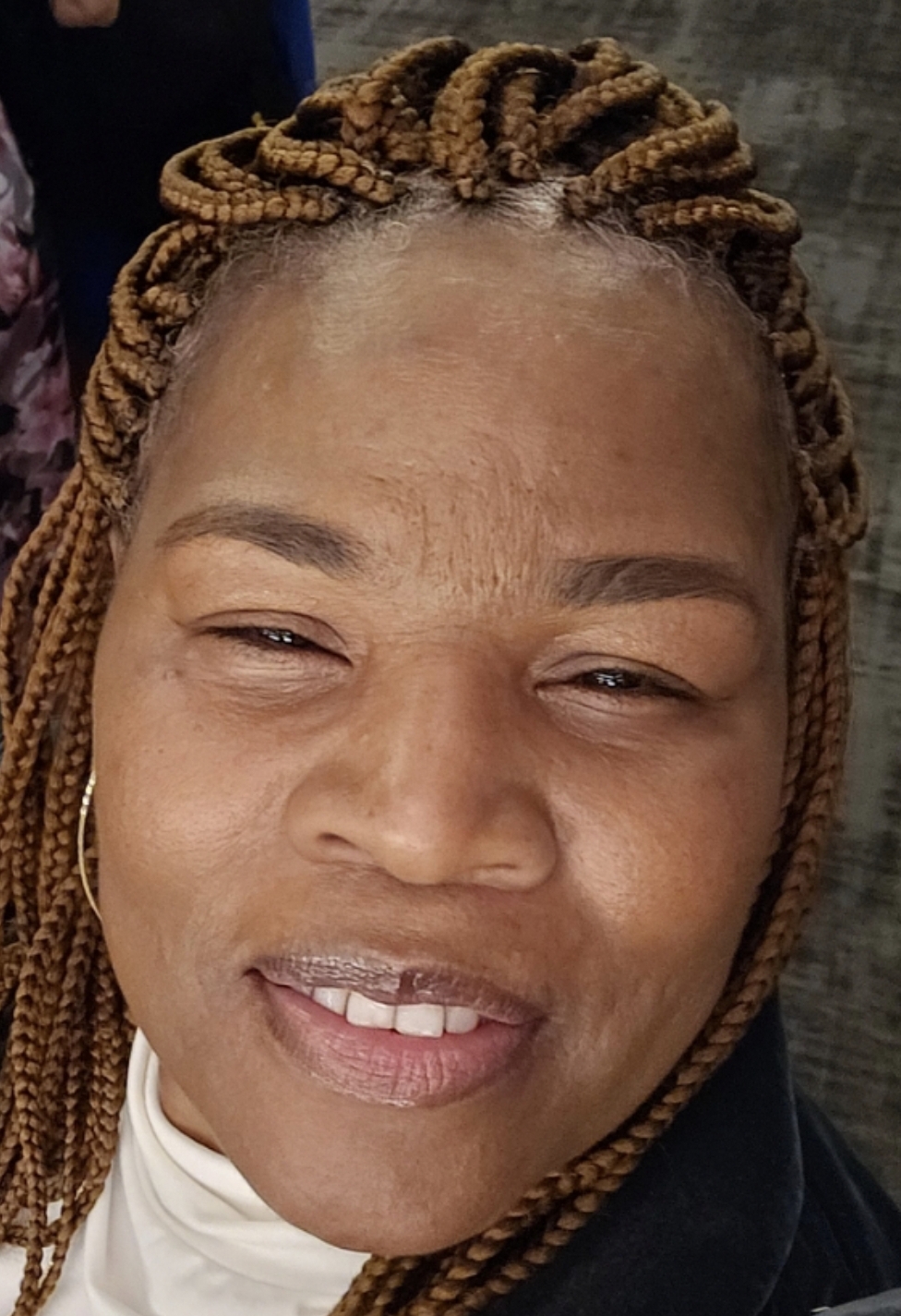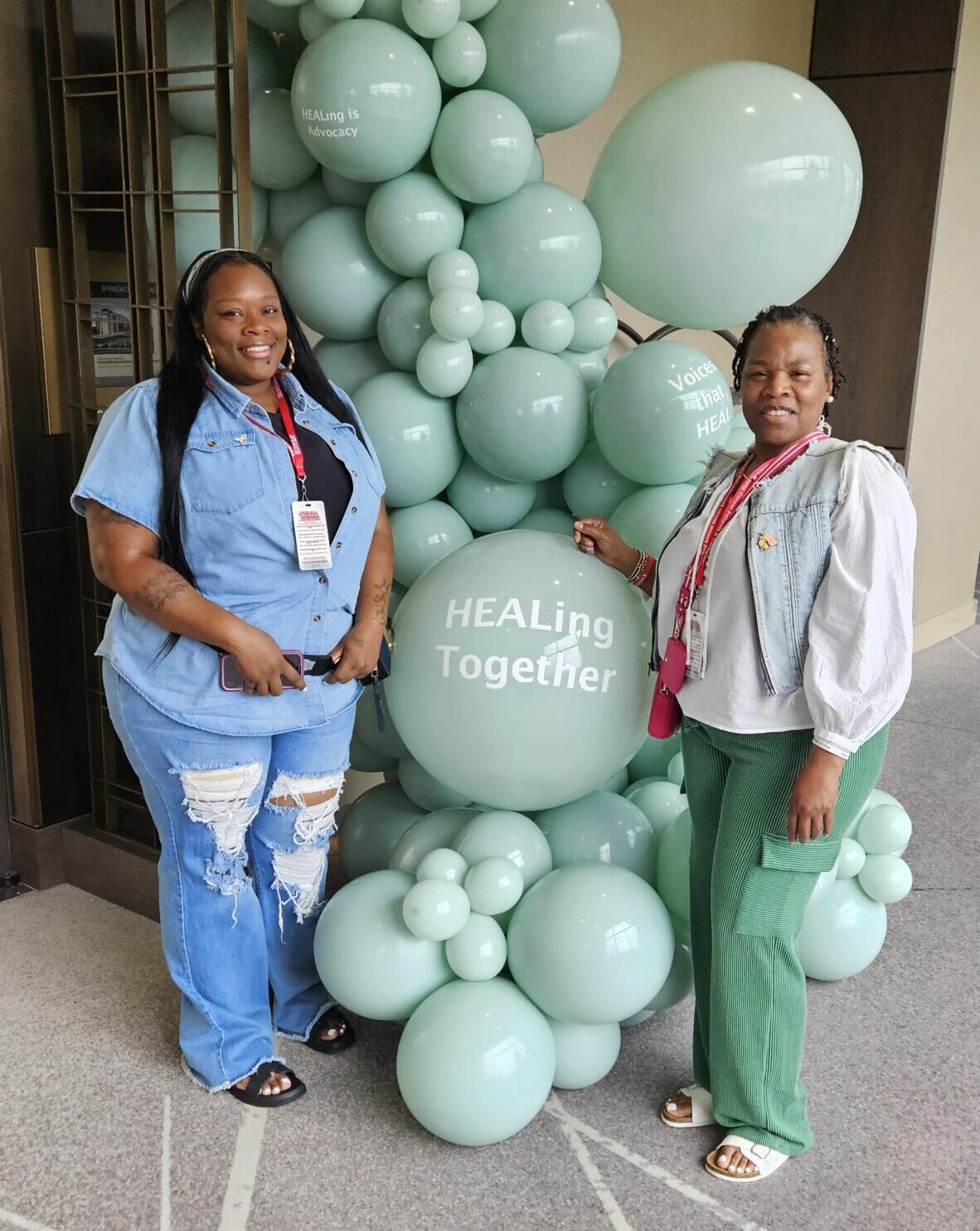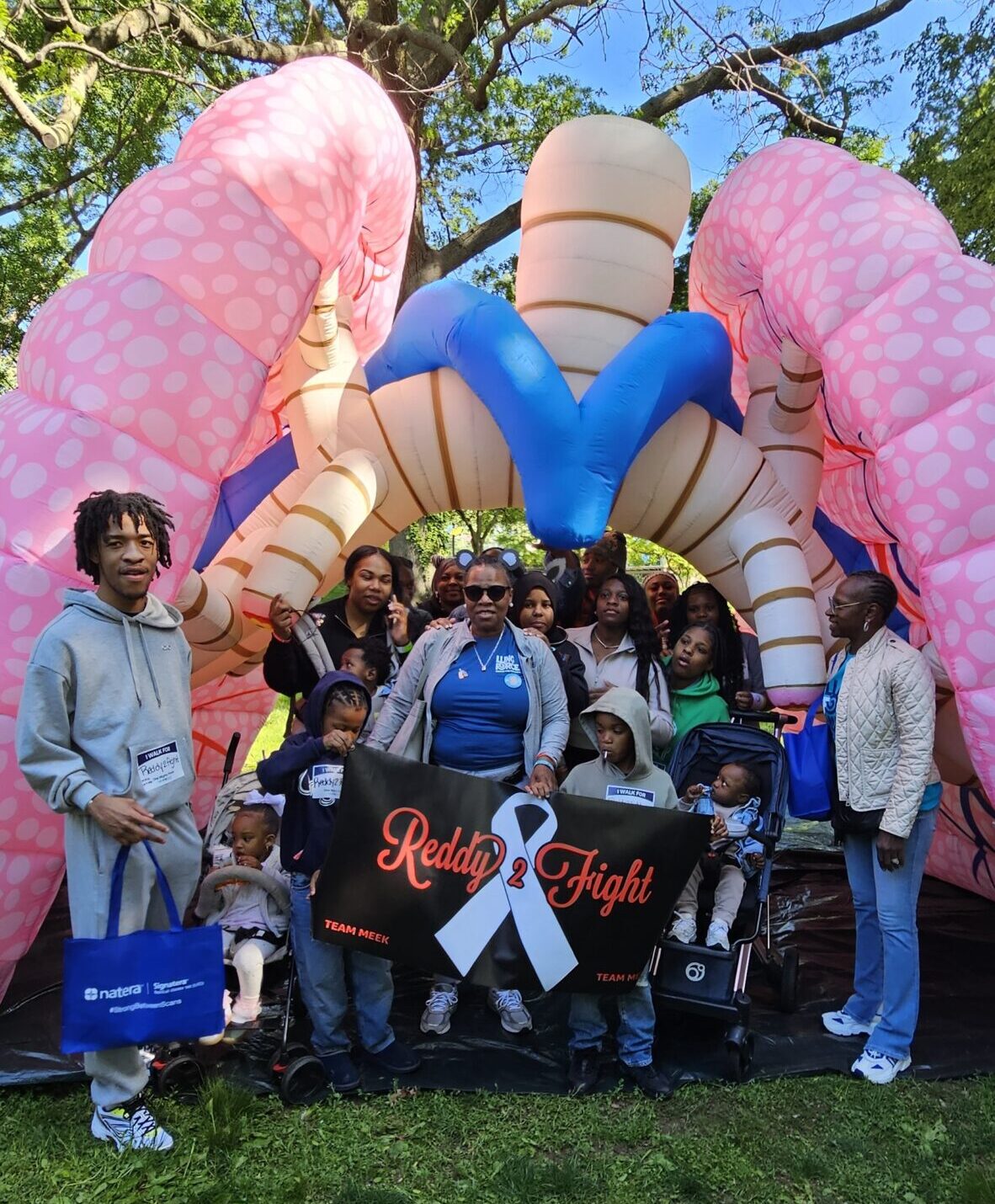Tamika R. was diagnosed with stage 4 (IV) metastatic lung cancer that had spread to the brain at just 48 years old. She is now retired from re-entry corrections with the goal of giving her grandchildren the rest of her time and energy, doing what makes her happy, and trying to live life to the fullest.
 Tamika knew something was off when she started losing weight without trying. In just 2 weeks, she lost 30 pounds. “I was just going through the holes on my belt,” she remembered. “I blamed it on working long hours.” But soon, it became clear that something more serious was going on. She was exhausted all the time, barely eating, and constantly in pain, especially in her back.
Tamika knew something was off when she started losing weight without trying. In just 2 weeks, she lost 30 pounds. “I was just going through the holes on my belt,” she remembered. “I blamed it on working long hours.” But soon, it became clear that something more serious was going on. She was exhausted all the time, barely eating, and constantly in pain, especially in her back.
Despite repeated visits to her primary care doctor and multiple tests, Tamika couldn’t get answers. Then one night, the pain became unbearable, and she went to the ER. She was then transferred to another hospital, where a doctor she’d never seen before—and would never see again—delivered life-changing news, in the middle of the night, with stunning bluntness: “You have cancer.” He checked his watch and walked out of the room.
Alone, shocked, and still groggy from sleep, Tamika couldn’t process what she’d just heard. “It was horrible,” she says. “No explanation, no support. Just that I had cancer. No one ever sat me down and had a real conversation with me.”
A new start at the University of Pennsylvania
 Tamika’s official diagnosis came in July 2017 as stage 4 (IV) lung cancer. Her family rallied around her from the start, filling hospital rooms and walking beside her every step of the way. But her experience at the hospital left her shaken. “It wasn’t welcoming. I didn’t feel cared for,” she said. She chose not to stay for treatment and transferred to the University of Pennsylvania, where everything changed.
Tamika’s official diagnosis came in July 2017 as stage 4 (IV) lung cancer. Her family rallied around her from the start, filling hospital rooms and walking beside her every step of the way. But her experience at the hospital left her shaken. “It wasn’t welcoming. I didn’t feel cared for,” she said. She chose not to stay for treatment and transferred to the University of Pennsylvania, where everything changed.
Her care team started with 10 days of radiation to manage her back pain, followed by chemotherapy, and then gamma knife radiosurgery on her brain. But the chemo was grueling. “My bones would lock up. My whole body would just hurt. I couldn’t keep anything down. I was a skeleton,” she said.
Keytruda (pembrolizumab), an immunotherapy drug, was just beginning to be used in lung cancer treatment and showing promise in some patients. Tamika’s oncologist suggested they try it. “She said, ‘Tamika, this is going to be a trial for both of us,’” she remembers. “But it ended up being the best decision ever.”
Within a few treatments, everything began to change.
A real-life miracle
Keytruda worked, and it worked fast. Tamika began regaining energy and strength. Her treatment schedule shifted, and life became more manageable. “I was getting back to myself. It really, really did me well.”
She remained on Keytruda for over 4 years, and with the support of her care team, transitioned off of it nearly 2 years ago. As of March 2025, Tamika was told that she had no evidence of disease. “I wasn’t ready for that news, and I didn’t really know how to accept it,” she said. “I didn’t even tell many people. I needed to process it first. I couldn’t imagine not being on any treatment—that took some real getting used to. But here I am, and I’m doing so well.”
Her oncologist calls her a miracle. And Tamika doesn’t take that lightly. She credits her outcome to faith, family, and her high PD-L1 levels that made her a strong candidate for immunotherapy. “That drug and my prayers to God, that’s what saved me.”
Finding community
 For the first 4 years of her diagnosis, Tamika leaned entirely on her family. As the youngest of 8 siblings, the mother of 4, and grandmother of 14 (with 1 great-grandchild!), she was never alone. “Every time I had an appointment, they were there. Kids, cousins—everybody. The doctors and nurses could barely do their jobs; my family was in the way, loving on me.”
For the first 4 years of her diagnosis, Tamika leaned entirely on her family. As the youngest of 8 siblings, the mother of 4, and grandmother of 14 (with 1 great-grandchild!), she was never alone. “Every time I had an appointment, they were there. Kids, cousins—everybody. The doctors and nurses could barely do their jobs; my family was in the way, loving on me.”
Still, she says, there was a loneliness that even her big family couldn’t touch. “Before I found my community, I was alone in this. I didn’t want to put it all on my family. They support you, but they can’t understand like someone who’s lived it.”
That changed when she started to discover the wider lung cancer community. “The first time I went to an event, I couldn’t stop smiling,” she recalls. “There was so much love and joy in the room. You don’t have to explain yourself. People just get it.”
Tamika’s advocacy continues to grow. She recently organized a White Ribbon event in Philadelphia, is planning to travel to lung cancer walks in other states, and is sharing her story wherever she can. “I want people to know this can be beaten,” she says. “If you have lung cancer, I’m here to let you know there’s hope.”
Looking ahead
After years of pain, uncertainty, and treatment, Tamika is focused on the future. “I just want to live my life. I retired early, and I’m spending time with my kids and my grandkids. I’m not turning back now.”
Tamika’s advice to someone newly diagnosed? “Learn what you need to learn. And find a community. You’ll know what to take from it and what to leave behind, but don’t do this alone.”
If you have been diagnosed with lung cancer, you are not alone. Contact our HelpLine for free one-on-one support, treatment and trial information, referrals, and more. Call 1-800-298-2436 or email support@go2.org today.

Leave A Comment